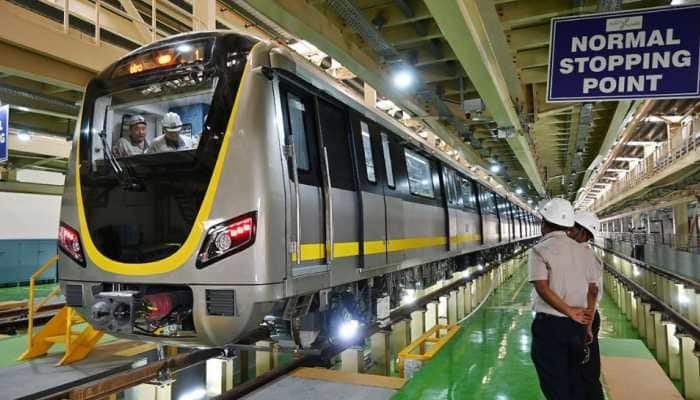HC can't direct for judges inclusion in security exemption list at airports: SC
The Supreme Court on Wednesday held that judiciary cannot enter the domain of executive to direct it to include chief justices and judges of high courts in the list of people exempted from re-embarkation security checks at airports saying the "matters of security are not issues of prestige and they are not matters of 'status'".
Trending Photos
)
New Delhi: The Supreme Court on Wednesday held that judiciary cannot enter the domain of executive to direct it to include chief justices and judges of high courts in the list of people exempted from re-embarkation security checks at airports saying the "matters of security are not issues of prestige and they are not matters of 'status'".
The apex court faulted more than decade-old direction of Rajasthan High Court to amend a circular dated May 1, 2002, of the Bureau of Civil Aviation Security (BCAS) to include chief justices and the judges of the high court in the list of persons exempted from re-embarkation security checks at airports.
"The High Court has evidently transgressed the 'wise and self-imposed' restraints (as they are described) on the power of judicial review by entertaining the writ petition and issuing these directions," a bench comprising Chief Justice TS Thakur and Justices DY Chandrachud and L Nageswara Rao said.
The High Court had suo moto taken cognisance of a news report regarding breach of security at Sanganer airport in Rajasthan and had directed for amending of BCAS circular on VIPS/VVIPS exempted from security checks at the airports.
While expressing its disapproval on High Court direction, Justice Chandrachud, writing the judgement for the bench said, "matters of security ought to be determined by authorities of the government vested with the duty and obligation to do so".
"Gathering of intelligence information, formulation of policies of security, deciding on steps to be taken to meet threats originating both internally and externally are matters on which courts singularly lack expertise.
"The breach of security at Sanganer airport undoubtedly was an issue of serious concern and would have been carefully investigated both in terms of prosecuting the offender and by revisiting the reasons for and implications of a security lapse of this nature. This exercise was for the authorities to carry out," the bench said while allowing the appeal of Centre against the 2005 directive of High Court.
In the original circular, Chief Justice of India and judges of Supreme Court were included in the security check exemption list but the chief justices of high courts were not included. However, after the high court direction, the Centre had included chief justices of high courts and filed the appeal.
The apex court maintained that "judges are expected to apply standards which are objective and well defined by law and founded upon constitutional principle. When they do so, judges walk the path on a road well-travelled".
"When judicial creativity leads judges to roads less travelled, in search of justice, they have yet to remain firmly rooted in law and the Constitution," it said, adding that it was not for the court in the exercise of its power of judicial review to suggest a policy which it considered fit.
"The formulation of suggestions by the high court for framing a National Security Policy travelled far beyond the legitimate domain of judicial review."
"Formulation of such a policy is based on information and inputs which are not available to the court. The court is not an expert in such matters. Judicial review is concerned with the legality of executive action and the court can interfere only where there is a breach of law or a violation of the Constitution," the bench said.
Critical of the high court taking the matter on its own motion, the bench said "a suo moto exercise of the nature embarked upon by the high court encroaches upon the domain of the executive".
"In a democracy based on the rule of law, government is accountable to the legislature and, through it, to the people. The powers under Article 226 are wide enough to reach out to injustice wherever it may originate."
"These powers have been construed liberally and have been applied expansively where human rights have been violated. But, the notion of injustice is relatable to justice under the law. Justice should not be made to depend upon the individual perception of a decision maker on where a balance or solution should lie", the bench said.
Stay informed on all the latest news, real-time breaking news updates, and follow all the important headlines in india news and world News on Zee News.
Live Tv







)
)
)
)
)
)
)
)
)
)
